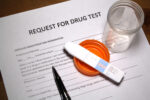Overdose in Midlife Adults

Drug overdoses are now the number one cause of accidental deaths in our country, and the numbers continue to rise with every year. Now more than ever, education, prevention and proper treatment are vital.
Notably, there has been an increase in overdose-related deaths among middle-aged people, lending to countless concerns in medical professionals, patients and loved ones alike given how frequently opioids are prescribed to people within that age range.
In this article, we’re going to discuss overdose rates in adults, the most common substances that lead to these overdoses, and the frequency of these occurrences within specific age groups.
Definition of overdose
An overdose can occur when someone takes far more than the recommended or prescribed dosage of a substance.
People of all ages can experience drug overdose, and in recent years, there has been a significant overdose spike in the demographic of men and women aged 40 to 60 years. When it comes to overdose deaths by age, this range has experienced a startling increase.
Having a grasp of what overdosing entails, showing compassion to those struggling with substance use and providing more education and preventative measures are all key to reducing the number of overdose deaths in our society.
Overdose and adults
The opioid crisis in our country is taking a significant toll on a demographic that might catch you off guard: middle-aged individuals.
Research reveals that overdoses within this age range are frequently considered accidental (such as in the case of upping one’s opioid dosage without medical approval), though this isn’t always the case.
Recreational drug use is rapidly increasing among men and women in their forties and fifties, but due to this not fitting the conventional midlife stereotype, it’s a severely unrepresented issue within our country.
Studies reveal that the majority of people within this age group predominantly overdose on opioids, which are almost always first legally obtained through a medical provider.
Countless addiction recovery groups have called for a stricter ban on the administration of opioids due to their highly addictive qualities as well as the frequency of opioid-drive overdoses.
Though the CDC has advised doctors to be especially careful when prescribing opioids, medical providers might not always screen for drug misuse during appointments with middle-aged individuals because they don’t fit the stereotype.
These men and women continue to experience struggles such as substance use disorder almost exactly as much as their younger counterparts, with the same fatal outcomes, but are still overlooked. Awareness is simply the first step.
Signs of overdose in adults
Depending on the substance, how much was ingested, any existing medical conditions, and whether or not the individual has additional substances in their system, a person can experience a wide range of symptoms.
These symptoms can be broken down into two categories: whether the individual is conscious or unconscious.
If the person is conscious, symptoms might include:
- Nausea and vomiting
- Severe stomach cramps and pain
- Visual disturbances and hallucinations
- Loss of coordination and balance
- Drowsiness and confusion
- Loss of consciousness
If the case when a person is unconscious, symptoms can include:
- Slow or erratic pulse
- Choking and gurgling sounds
- Shallow breathing or snoring deeply
- Clammy, pale face and skin
- Blue lips or fingernails
- Lack of a pulse or breath
It’s important to remember that everyone’s body reacts to drugs differently and you may not always be able to definitively tell whether or not someone has overdosed. When in doubt, always call 911 . You just might save someone’s life.
Contact us for personal support
If you or someone you love is struggling with a substance use disorder, don’t hesitate to seek professional help. Left untreated, substance abuse can be devastating to our livelihoods and in tragic cases, result in a fatal overdose.
Prevention is key, and we’re here to help you do it.
We at Silver Ridge Recovery specialize in providing high-quality, proven-to-be effective addiction treatment for midlife adults struggling with a substance use disorder.
Our programs focus on the full-spectrum wellbeing of the individual — rather than just the problem — and each one is customizable to your specific needs.
To learn more about our treatment plans and which might be right for you, give us a call today at 855-945-7788.









